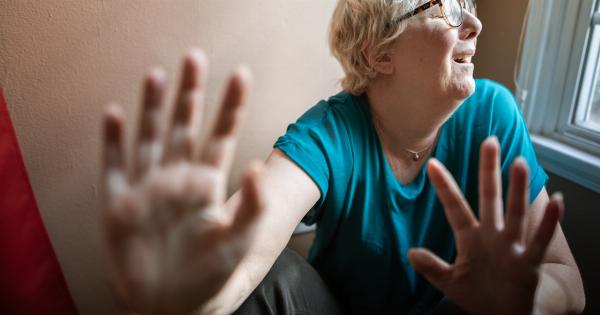Child sexual abuse is a prevalent issue worldwide that affects millions of children. Unfortunately, many cases go unreported, and the perpetrators remain free to commit more crimes against vulnerable children.
However, speaking out about child sexual abuse can help to prevent further harm and bring the perpetrators to justice.
Alexandra Kappatou’s Story
Alexandra Kappatou was a victim of child sexual abuse, and she decided to speak out about her experiences to help other victims of abuse. Alexandra was abused as a child by a family friend, and the abuse continued for several years.
She felt trapped and ashamed and believed that no one would believe her if she spoke out.
However, Alexandra eventually found the courage to speak out about the abuse and the impact it had on her life. She received support from her family and friends, and she was able to begin the healing process.
Alexandra also decided to use her voice to raise awareness about child sexual abuse and help other survivors find the strength to speak out.
Here are some of the tips that Alexandra shares for addressing child sexual abuse:.
1. Recognize the Signs of Abuse
It’s essential to recognize the signs of child sexual abuse so that you can intervene and protect the child. Some signs of abuse include:.
- Unexplained injuries or bruises
- Difficulty walking or sitting
- Changes in behavior, such as becoming withdrawn or aggressive
- Inappropriate sexual behavior or language for their age
- Regression in behavior, such as bed-wetting
2. Create a Safe Environment for the Child
If you suspect that a child is being sexually abused, it’s essential to create a safe environment for them. Let the child know that you believe them and that they are not at fault.
Listen to the child without judgment and provide them with emotional support. If necessary, contact the appropriate authorities to ensure the child’s safety.
3. Encourage the Child to Speak Out
Talking about abuse can be difficult for children, especially if they fear retaliation or harm.
However, encouraging the child to speak out about their experiences is essential for their mental and emotional well-being and to bring the perpetrator to justice. If the child is hesitant to talk, reassure them that they are safe and offer them options for seeking help, such as counseling or a hotline.
4. Support the Child’s Healing Process
The healing process for survivors of child sexual abuse is a long and challenging journey. It requires patience, understanding, and support from loved ones.
Encourage the child to seek professional help and offer them emotional support throughout their healing process. Remember, healing is a personal journey, and it takes time.
5. Raise Awareness About Child Sexual Abuse
Child sexual abuse is a prevalent issue that affects millions of children worldwide. Raising awareness about this issue can help to prevent abuse and encourage more victims to speak out.
Participate in community events, educate family and friends about the signs of abuse, and advocate for stricter laws to protect children from predators.
6. Seek Professional Help
If you or someone you know has been a victim of child sexual abuse, seeking professional help is essential. This can include counseling, therapy, or support groups.
Professional help can provide the necessary tools and resources to begin the healing process and move forward after experiencing trauma.
Conclusion
Child sexual abuse is a devastating crime that can have a long-lasting impact on survivors. Speaking out about abuse can help to prevent further harm and bring the perpetrators to justice.
If you or someone you know has been a victim of child sexual abuse, remember that it’s okay to seek help and support. Together, we can work to create a safer world for children.



























